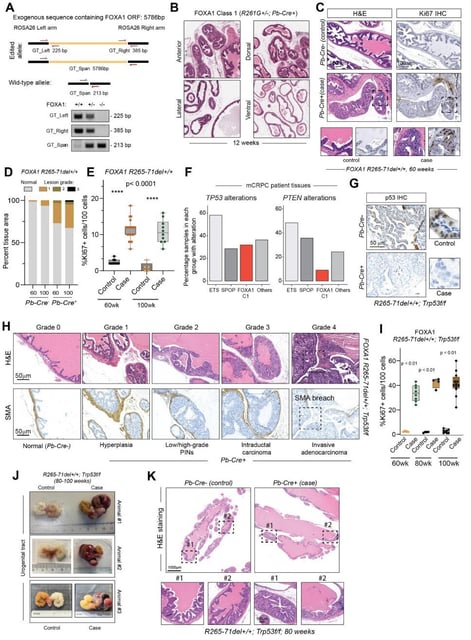Overview
- The University of Michigan Rogel Health Cancer Center study used genetically engineered mouse models and was published in Science
- Class 1 FOXA1 mutations cooperate with TP53 loss to trigger aggressive, androgen-dependent tumors that respond to androgen deprivation therapy
- Class 2 FOXA1 mutations reprogram cellular lineage identity in metastatic tumors, enabling resistance to conventional hormone treatments
- FOXA1 alterations are found in 10–40% of hormone-dependent prostate cancers and play a direct causal role in both tumor initiation and therapy resistance
- The new models offer a platform for developing FOXA1 mutation–specific therapeutic strategies aimed at blocking tumor growth or overcoming resistance
